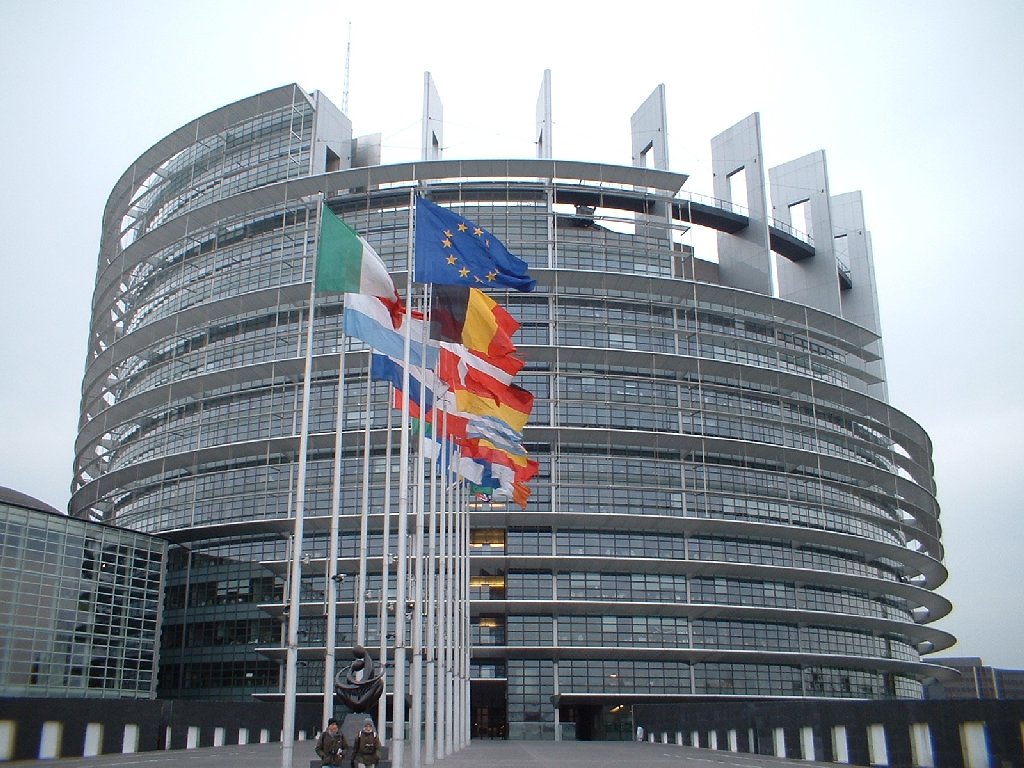OLAF report confirms the allegations about Frontex’s serious misconducts and irregularities
I. Introduction
On Thursday 13th October, the German freedom of information specialists Frag Den Staat, together with other media organizations, published a classified European Anti-Fraud Office (OLAF) report on Frontex, the EU Border and Coast Guard Agency (EBCG), which confirms the credibility of many of the serious allegations of cover ups of human rights violations in EU Member States by the agency and its staff.[1] This much-anticipated report was the result of an OLAF investigation, started in October 2020, when OLAF received information referring to possible irregularities affecting the EBCG Agency. Indeed, some of these allegations, namely those referring to Frontex’s involvement in illegal pushbacks of migrants, had already received wide media coverage in 2020.[2]
Indeed, in recent years, Frontex has come under severe external scrutiny from different institutions, organizations, and legal bodies. In November 2020, the European Ombudsman started an own-initiative inquiry on the functioning of the Frontex’s fundamental rights-related complaint mechanism.[3] Additionally, in March 2021, the European Parliament set up a Frontex Scrutiny Working Group of the LIBE Committee on Civil Liberties, Justice and Home Affairs, with the mandate to permanently monitor all aspects of Frontex’s functioning, including its reinforced role and resources for integrated border management, the correct application of the EU acquis, and its execution of Regulations (EU) 2019/1896 and 656/2014.[4] Moreover, the European Court of Auditors released a report on the effectiveness of Frontex’s support to external border management, underlying various issues affecting the Agency’s ability to fulfil its new mandate stemming from Regulation (EU) 2019/1896.[5]
The OLAF 123-pages long report, which confirms the credibility of the abovementioned allegations, followed the resignation of the Executive Director of Frontex, Fabrice Leggeri, in April 2022.[6] Before explaining the main findings from the recent OLAF report, it is useful to present how the legal framework governing the Agency has evolved throughout the years, including its budget, tasks and mandate.
II. The evolution of Frontex’s legal framework
Established in 2004, through Council Regulation (EC) 2007/2004,[7] the European Border and Coast Guard Agency (EBCGA), better known as Frontex, was a crucial initiative and significant development in the framework of the EU’s common policy on external border management. The Agency’s original name was “European Agency for the Management of Operational Cooperation at the External Borders of the Member States of the European Union”. Indeed, Frontex’s initial mandate was to enhance and support inter-agency and operational cooperation among the Member States’ border control agencies, and to develop and promote common policies on training, risk assessment and joint operations.
In the following years, Frontex’s structure, mandate, and capacity have been significantly expanded. Through the 2007,[8] 2011,[9] 2016[10] and 2019[11] revisions, the Agency progressively endorsed a more operational role and moved away from a purely coordinating role. This was primarily due to the 2014-2016 migration crisis, which accelerated the transformation of Frontex into a law-enforcement type of agency. With the entry into force of Regulation (EU) 2016/1624, Frontex was renamed the “European Border and Coast Guard Agency“, comprising the Agency and the national authorities responsible for managing borders. Only two years after the entry into force of the 2016 Regulation, Regulation (EU) 2019/1896 was adopted, which provided Frontex with a reinforced mandate and responsibilities. The main novelty was the establishment of the European Border and Coast Guard Standing Corps, the EU’s first uniformed law-enforcement service, with executive powers to support Member States on the ground in their efforts to protect EU external borders. This set-up required an unprecedented amount of personnel, foreseeing up to 10,000 operational staff to be at the Agency’s disposal by 2027.[12]
Frontex’s budget also increased at a rapid pace, from EUR 333 million in 2019 to EUR 364 million in 2020, and from 535 million in 2021 to 754 million in 2022, thus reflecting a completely different picture compared to the 2005 EUR 6 million budget.[13]
III. Frontex’s mandate and tasks
The European Border Coast Guard agency is established “to ensure European integrated border management at the external borders with a view to managing these borders efficiently, in full compliance with fundamental rights and to increasing the efficiency of the Union return policy”.[14] Frontex implements European integrated border management (hereinafter, EIBM) as a shared responsibility of the Agency and of the national authorities responsible for border management.[15]
Article 77(1)(c) of the Treaty on the Functioning of the European Union provides that the Union shall develop a policy with a view to “the gradual introduction of an integrated management system for external borders”.[16] Indeed, the concept of EIBM has gradually developed throughout the years, yet it only became legally binding with the adoption of Regulation (EU) 2016/1624. Today, Article 3 of Regulation (EU) 2019/1896 defines the main EIBM’s components, which include, inter alia, border control, measures related to the prevention and detection of cross-border crime, search and rescue operations, information exchange and cooperation between Member States and with third countries, as well as the return of third-country nationals who are the subject of return decisions issued by a Member State.
The specific tasks of the Agency are listed in Article 10 of Regulation (EU) 2019/1896. Those include, among others, to monitor migration flows, to carry out risk analysis and vulnerability assessments of the capacity and readiness of Member States to face threats and challenges at the external borders, to assist Member States in circumstances requiring increased technical and operational assistance by organizing Joint Operations and/or by launching rapid border interventions, and to cooperate with EU agencies (such as Europol and Eurojust) and third countries in the fight against cross-border crime and terrorism. Importantly, Frontex also supports and assists Member States at all stages of the return process, including pre-return activities, identification of third-country nationals, coordination, or organization of return operations, while Member States remain responsible of the merit of return decisions.
IV. The OLAF report
In view of the allegations received, on 11 November 2020, OLAF opened an internal investigation, focused on potential misconducts and/or irregularities related to a) the alleged potential involvement in and/or cover up of illegal pushbacks, and b) the internal functioning and management of Frontex; both committed by natural persons within the Agency, whose names have been censored in the leaked report.[17] Subsequently, OLAF decided to split the case, given the significant progress made with regard to what covered under point a) above. The sources collected and analysed by OLAF included documentation from the European Commission, open sources, and documents from the persons concerned. In December 2020, OLAF carried out an inspection at the offices of the persons concerned, alongside with digital forensic operations. Additionally, OLAF also interviewed the persons concerned and heard from several witnesses. The OLAF report categories the failings of the persons investigated into three types, namely: i) Failure to follow procedures and processes, ii) failure in their duty of loyalty and iii) failure in their managerial responsibilities.
1) Failure to follow procedures and processes
The OLAF investigation revealed that the persons concerned failed to ensure compliance with the applicable Standard Operating Procedures on Serious Incident Reporting, leading to the exclusion of the Frontex Fundamental Rights’ Officer (FRO) from the assessment and handling of some incidents, and thus to the failure to initiate Serious Incident Reports from incidents with a potential fundamental rights component. Serious Incident Reports (SIR) oblige every participant in Frontex operational activities to immediately report any situation of possible violations of fundamental rights. This may include violations of international law, the EU acquis, the Frontex’s Code of Conduct, or situations with serious actual or potential negative implications on the agency’s tasks. The Serious Incident Reports are then handled by the Fundamental Rights’ Office. According to the information OLAF received, it was “impossible for FRO to be aware of the existence of that specific document in the system”, namely classified information, including SIRs.[18] The process of handling SIRs was also manipulated in a way to avoid FRO’s involvement, by avoiding SIR’s classification as “Category 4”, which would have immediately triggered a FRO’s investigation. In other occasions, OLAF found that sometimes a decision was taken not to create a SIR in the first place.
Moreover, the investigation revealed that the persons concerned instructed relevant Frontex entities to act in a way which practically obstructed the FRO’s access to information available within the agency, including the European Border Surveillance System (EUROSUR). EUROSUR provides a common framework for information exchange and cooperation between Member States and Frontex to improve situational awareness and increase reaction capability at the external borders. This negatively affected the FRO’s ability to effectively perform its tasks, notably monitoring the agency’s compliance with fundamental rights.
Furthermore, the report also states that the persons concerned failed to take appropriate action in relation to two incidents witnessed by Frontex, after having been informed that some of the Agency’s co-financed assets have been involved in those. OLAF also found that the persons under investigation relocated a Frontex aerial asset to a different operational area of activity, in order to, among other reasons, avoid witnessing incidents in the Aegan Sea with a potential fundamental rights component.
2) Failure in their duty of loyalty
The OLAF’s report also demonstrated the lack of loyalty of the persons under investigations towards the Union. Specifically, these people partly based their decisions on personal prejudices and their low esteem towards European Commission’s officials, considering the latter to be excessively focused on fundamental rights matters and with no understanding of the operational issues of external borders management.
3) Failure in their managerial responsibilities
OLAF also found that the persons concerned had instructed the relevant Frontex entities to publish the vacancy notices for the FRO and Deputy FRO posts without prior involvement of the Management Board, for the FRO post, and of the FRO, for the Deputy FRO Post. The vacancies were tactically published one day before the Management Board meeting, and one of the persons concerned admitted (in a WhatsApp message) that he/she wanted the vacancy notice to be published before the new Commissioner took office, as the person feared the latter might have been too supportive on fundamental rights issues. Another issue was related to the violation of EU administration standards concerning the handling of an administrative inquiry against Frontex staff (in relation to the reasonable duration of the inquiry, as set in the European Code of Good Administrative Behaviour, reflected in the Frontex Code of Conduct).
Furthermore, the report also revealed that one of the persons under investigation disclosed delicate or sensitive information, without any legitimate justification, and presented an incorrect or biased description of facts about the way the Agency had dealt with fundamental rights-related matters when informing the EU Institutions (European Parliament and European Commission).
OLAF concluded the repeated misconduct of the persons under investigation to be in breach of the Frontex Code of Conduct, the Staff Regulation of Officials in the EU, the EBCG Regulations (Regulation (EU) 2016/1624 and Regulation (EU) 2019/1896), in particular in relation to the protection of fundamental rights in the performance of the Agency’s tasks.
V. Conclusion
As mentioned above, Frontex has recently been under scrutiny by several organizations, institutions, and legal bodies. The 2021 Frontex Scrutiny Working Group report concluded that there was no conclusive evidence supporting allegations of direct pushbacks and/or collective expulsions by Frontex in the serious incident cases that were examined by the Working Group. The OLAF report reverses this finding, proving the Agency’s involvement in illegal pushbacks and the Frontex’s staff disregard of the Fundamental Rights Office related role and tasks. Nevertheless, the Working Group report had also accused Frontex of failing to promptly and effectively address and follow up allegations of fundamental rights violations, and criticized other important issues, namely the delay in the recruitment of fundamental rights monitors, the lack of cooperation on the part of the Executive Director in ensuring compliance with several provisions of the Frontex Regulation, and the passive role of the agency’s management board in addressing the serious risk of fundamental rights violations.[19] On December 12, Human Rights Watch and Border Forensics accused Frontex of involvement in the operation of drones and aircrafts, enabling Libyan Coast Guard to intercept migrant boats, knowing that migrants and asylum seekers will face systematic abuse when returned to Libya.[20]
The EBCG Regulation, together with the Financial Framework Regulation, the requirements of Better Regulation and the principles of sound and efficient management require that Frontex is evaluated on a regular basis. The previous evaluation was carried out in 2015.[21] On 5 September 2022, the European Commission (DG HOME) published a call for evidence for an evaluation of Regulation (EU) 2019/1896 and a review of the Standing Corps.[22] Statewatch had already reacted to this initiative, suggesting that the priority should be to ensure the implementation of the recommendations put forward in recent years, with a view to increase the compliance of the Agency with its fundamental rights obligations, rather than a revision of Regulation (EU) 2019/1896.[23] Therefore, the upcoming evaluation will be particularly important for Frontex’s future and will be carried out during a very delicate moment for the Agency. Indeed, academics have widely discussed the increasing level of autonomy of EU agencies (especially Frontex) without adequate control mechanism,[24] which make evaluations of these agencies crucial to understand their effectiveness and EU added value. Additionally, the European Parliament also made use of its powers to raise attention on the Agency and its failures to comply with EU law, by refusing to approve Frontex’s budget.[25]
Since the EU migration policy has increasingly become more focused on securing the external borders, the extended mandate of the European Border Coast Guard Agency makes addressing the issues covered in the OLAF report more urgent than ever, to ensure the respect of fundamental rights of migrants at the external borders of the EU. Through the upcoming evaluation, the European Commission will soon have to take on board all the findings from these investigations and make sure that the most well-funded EU Agency will not violate European and International law. As indicated by the agency in a press release published in mid-October, which also provides a number of remedial measures, we really hope that “these were practices of the past“[26]
[1] FragDenStaat, “Olaf Final Report on Frontex“, October 2022. Available here: https://fragdenstaat.de/dokumente/233972-olaf-final-report-on-frontex/
[2] Fallon K, “EU border force ‘complicit’ in illegal campaign to stop refugees landing”. The Guardian, October 2020. Available here: EU border force ‘complicit’ in illegal campaign to stop refugees landing | Refugees | The Guardian
[3] The inquiry revealed that there have been delays by Frontex in implementing the important changes introduced by Regulation (EU) 2019/1896 and identified many areas for improvement.
European Ombudsman, “How the European Border and Coast Guard Agency (Frontex) deals with complaints about alleged fundamental rights breaches through its Complaints Mechanism“, November 2020. Available here: How the European Border and Coast Guard Agency (Frontex) deals with complaints about alleged fundamental rights breaches through its ‘Complaints Mechanism’ | Case | European Ombudsman (europa.eu)
[4] European Parliament. LIBE Committee, “Report on the fact-finding investigation on Frontex concerning alleged fundamental rights violations”, July 2021. Available here: 14072021 Final Report FSWG_en.pdf (europa.eu)
[5] European Court of Auditors “Frontex’s support to external border management: not sufficiently effective to date.” Special Report. No. 08, June 2020. Available here: Special Report 08/2020: Frontex’s support to external border management (europa.eu)
[6] European Commission. “Commission statement on the resignation of Fabrice Leggeri“, April 2022. Available here: Commission statement on the resignation of Fabrice Leggeri (europa.eu)
[7] Council Regulation (EC) No 2007/2004 of 26 October 2004 establishing a European Agency for the Management of Operational Cooperation at the External Borders of the Member States of the European Union. Available here: EUR-Lex – 32004R2007 – EN – EUR-Lex (europa.eu)
[8] Regulation (EC) No 863/2007 of the European Parliament and of the Council of 11 July 2007 establishing a mechanism for the creation of Rapid Border Intervention Teams and amending Council Regulation (EC) No 2007/2004 as regards that mechanism and regulating the tasks and powers of guest officers. Available here: EUR-Lex – 32007R0863 – EN – EUR-Lex (europa.eu)
[9] Regulation (EU) No 1168/2011 of the European Parliament and of the Council of 25 October 2011 amending Council Regulation (EC) No 2007/2004 establishing a European Agency for the Management of Operational Cooperation at the External Borders of the Member States of the European Union. Available here: EUR-Lex – 32011R1168 – EN – EUR-Lex (europa.eu)
[10] Regulation (EU) 2016/1624 of the European Parliament and of the Council of 14 September 2016 on the European Border and Coast Guard and amending Regulation (EU) 2016/399 of the European Parliament and of the Council and repealing Regulation (EC) No 863/2007 of the European Parliament and of the Council, Council Regulation (EC) No 2007/2004 and Council Decision 2005/267/EC. Available here: EUR-Lex – 32016R1624 – EN – EUR-Lex (europa.eu)
[11] Regulation (EU) 2019/1896 of the European Parliament and of the Council of 13 November 2019 on the European Border and Coast Guard and repealing Regulations (EU) No 1052/2013 and (EU) 2016/1624. Available here: EUR-Lex – 32019R1896 – EN – EUR-Lex (europa.eu)
[12] See Annex I of Regulation (EU) 2019/1896 of the European Parliament and of the Council of 13 November 2019 on the European Border and Coast Guard and repealing Regulations (EU) No 1052/2013 and (EU) 2016/1624. Available here: EUR-Lex – 32019R1896 – EN – EUR-Lex (europa.eu)
[13] Frontex. Key Facts. Available here: Key Facts (europa.eu)
[14] Article 1. Regulation (EU) 2019/1896 of the European Parliament and of the Council of 13 November 2019 on the European Border and Coast Guard and repealing Regulations (EU) No 1052/2013 and (EU) 2016/1624. Available here: EUR-Lex – 32019R1896 – EN – EUR-Lex (europa.eu)
[15] Article 7(1). Regulation (EU) 2019/1896 of the European Parliament and of the Council of 13 November 2019 on the European Border and Coast Guard and repealing Regulations (EU) No 1052/2013 and (EU) 2016/1624. Available here: EUR-Lex – 32019R1896 – EN – EUR-Lex (europa.eu)
[16] Article 77(1)(c) of the Treaty on the Functioning of the European Union. Available here: EUR-Lex – 12016E077 – EN – EUR-Lex (europa.eu)
[17] European Anti-Fraud Office (OLAF) Case OC/2021/0451/A1. Final Report, 2021. Available here: OLAF Final Report on Frontex – FragDenStaat – FragDenStaat
[18] Ibid
[19] European Parliament. LIBE Committee, “Report on the fact-finding investigation on Frontex concerning alleged fundamental rights violations”, July 2021. Available here: 14072021 Final Report FSWG_en.pdf (europa.eu)
[20] According to Human Rights Watch and Border Forensics “as long as Frontex operations are designed to enable interceptions by Libyan forces, the border agency and the EU should be held accountable for their role in the abuses suffered by people returned to Libya“. Human Rights Watch, “EU: Frontex Complicit in Abuse in Libya. Aerial Surveillance is enabling interceptions, return of migrants to harm“, 12 December 2022, Available here: EU: Frontex Complicit in Abuse in Libya | Human Rights Watch (hrw.org)
[21] Ramboll and EurAsylum, “External Evaluation of the Agency under Art 33 of the Frontex Regulation” Final Report, July 2015. Available here: Ramboll, EurAsylum (2015) External evaluation of the Agency under Article 33 of the Frontex Regulation. Final Report
[22] European Commission, “European Border and Coast Guard/Frontex – standing corps review and evaluation of Regulation“, 5 September 2022. Available here: European Border and Coast Guard/Frontex – standing corps review and evaluation of Regulation (europa.eu)
[23] Statewatch, “Evaluation of the 2019 Frontex Regulation: Statewatch submission to the European Commission call for evidence“, October 2022. Available here: Statewatch | Evaluation of the 2019 Frontex Regulation: Statewatch submission to the European Commission call for evidence
[24] Among others, see: Marin, L., Gkliati, M.; Tas, S. “An ‘Impossible Trinity’?: Frontex, EU External Borders and the Rule of Law” VerfBlog, September 2022 Available here: An ‘Impossible Trinity’? – Verfassungsblog; Gkliati M. “The Next Phase of The European Border and Coast Guard: Responsibility for Returns and Push-backs in Hungary and Greece. European Papers“, 2022. Available here: The Next Phase of The European Border and Coast Guard: Responsibility for Returns and Push-backs in Hungary and Greece (europeanpapers.eu)
[25] European Parliament, “Frontex: MEPs refuse to discharge EU border agency over is management in 2020“, October 2022. Available here: Frontex: MEPs refuse to discharge EU border agency over its management in 2020 | News | European Parliament (europa.eu)
[26] Frontex, “Statement of Frontex Executive Management following publication of OLAF report“, 14 October 2022, Available here: https://frontex.europa.eu/media-centre/news/news-release/statement-of-frontex-executive-management-following-publication-of-olaf-report-amARYy
Laureata in giurisprudenza italo-francese presso l’Universita’ degli Studi di Firenze e l’Université Paris 1 Panthéon-Sorbonne, con tesi in diritto dell’Unione Europea, ha conseguito un LLM in International and European Law presso l’Institute for European Studies, a Bruxelles. Attualmente lavora come analista presso ICF, una società di consulenza internazionale, in cui e’ prevalentemente coinvolta in studi di ricerca per le istitutzioni Europee, prevalentemente la Commissione Europea.




